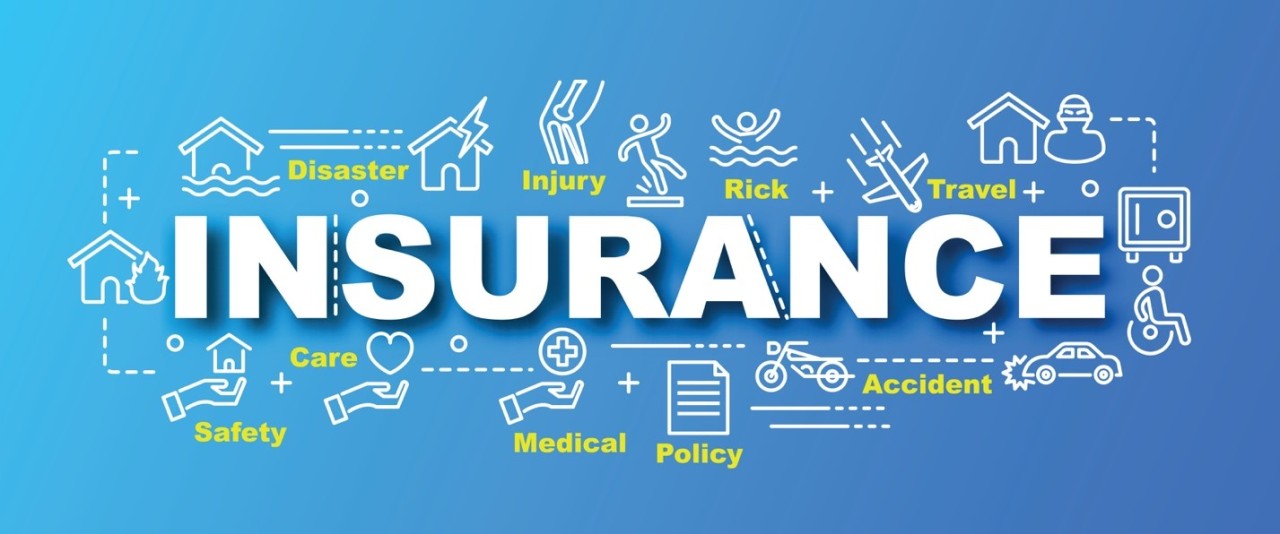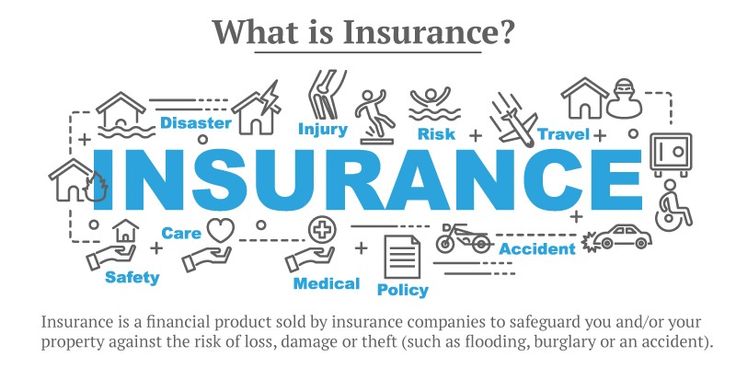Insurance is a concept that provides financial protection and peace of mind by covering potential risks and losses. In straightforward language, insurance is a formal arrangement between a person or entity (the policyholder) and an insurance company, in which the policyholder pays a regular premium in return for financial coverage. protection against specified risks.
How Insurance Works
Insurance operates on the principle of risk pooling. When you purchase insurance, you’re contributing a small amount (your premium) to a larger pool of funds. This pool helps cover the losses of individuals or entities who experience unforeseen events like accidents, illnesses, property damage, or legal liabilities. The more people who contribute, the more substantial the fund becomes, allowing the insurer to spread the financial burden of risks across multiple policyholders.

Types of Insurance
A wide range of insurance types is available, with each one aimed at protecting distinct elements of life. Some of the most common types include:
Health Insurance: It encompasses various medical expenses, including visits to physicians, inpatient care, surgical interventions, and prescribed medications.
Life Insurance: Pays a lump sum or monthly payments to a beneficiary upon the death of the insured person. This is primarily designed to provide financial security for loved ones.
Auto Insurance: Covers financial losses related to car accidents, theft, or damage to a vehicle. It can also protect against injury or liability for others involved in an accident.
Homeowners/Renters Insurance: Protects homeowners and renters from financial loss due to property damage, theft, or liability claims. It usually includes both the property and individual items.
Disability Insurance: Provides income replacement if you become disabled and are unable to work. This can be short-term or long-term depending on the policy.
Travel Insurance: Offers coverage for unexpected events while traveling’ such as trip cancellations’ medical emergencies’ lost luggage’ & flight delays.
Liability Insurance: Defends individuals and organizations against assertions of negligence or harm directed at others. It includes professional liability (errors and omissions insurance) and general liability insurance.
Pet Insurance: Helps cover the medical costs of treating pets, including routine check-ups and emergency treatments.
The Benefits of Insurance
- Financial Protection
The primary benefit of insurance is financial protection. Whether it’s a sudden medical emergency, a car accident, or damage to your property, insurance can alleviate the financial burden by covering the costs, reducing the impact of an unexpected event.
- Peace of Mind
Knowing that you’re protected in case of an accident, illness, or other unexpected events brings a sense of security. You can focus on your daily life without worrying about the potential financial ruin that could come from a disaster.
- Risk Mitigation
Insurance helps spread the risks associated with various aspects of life, reducing the likelihood that you’ll face a catastrophic financial loss. For example, if you experience a car accident, your auto insurance will cover the costs of repairs or medical bills, preventing you from having to pay out-of-pocket for large expenses.
- Legal Protection
Certain types of insurance, such as liability or professional indemnity insurance, provide legal protection. For instance, if someone sues you for injury or damages, liability insurance can help cover the legal fees and any settlements or judgments.
- Access to Services
Insurance companies often have partnerships with healthcare providers, repair services, or legal professionals. For example, health insurance often gives you access to a network of doctors and hospitals, while auto insurance may offer services like roadside assistance or discounts on repairs.
- Tax Benefits
Certain types of insurance, such as life insurance and health insurance, can offer tax advantages in some countries. For instance, the premiums you pay for health insurance may be tax-deductible, or life insurance proceeds may not be subject to income tax.
- Business Continuity
For businesses, insurance plays a crucial role in maintaining operations during a disaster. Business interruption insurance can cover lost income if a company is temporarily unable to operate due to unforeseen events, such as a fire or natural disaster.
- Investment and Savings Opportunities
Some life insurance policies have a savings or investment component. These are called “whole life” or “universal life” policies, which not only provide coverage but also accumulate a cash value over time. You can borrow against this cash value or use it as an investment for the future.
- Social Welfare
In some countries, insurance is part of the social welfare system. For instance, public health insurance or unemployment insurance helps citizens cover medical costs or provide income support during periods of unemployment.
- Affordability
Though insurance may seem expensive at first glance, it offers financial protection for situations that would otherwise lead to much higher costs. Most insurers offer flexible plans that cater to different budgets, making coverage affordable for individuals and families.

Why Insurance is Essential
Insurance is essential for mitigating the unpredictable nature of life. Accidents, health issues, natural disasters, and unexpected situations can occur at any time. Insurance acts as a safety net, ensuring that you’re not left financially vulnerable during tough times.
For Individuals: It provides protection for families, homes, cars, and health, which can otherwise lead to significant financial burdens. Without insurance, individuals might face difficulty paying for medical treatments or replacing a vehicle after an accident.
For Businesses: Insurance helps protect against operational disruptions, employee injuries, and lawsuits. Without the right coverage, a business could face bankruptcy due to an unexpected event.
Conclusion
Insurance is more than just a contract; it’s a vital financial tool that helps reduce uncertainty in life. It gives people and businesses the security they need to face the unknown, knowing they will have financial support in case of an emergency. By spreading risk and providing financial protection, insurance helps maintain stability and fosters confidence in both personal and professional life.
Choosing the right insurance policy can be a wise approach to shield your future, your loved ones, and your assets. While no one can predict the future, insurance helps ensure you’re prepared for whatever life may throw your way.
